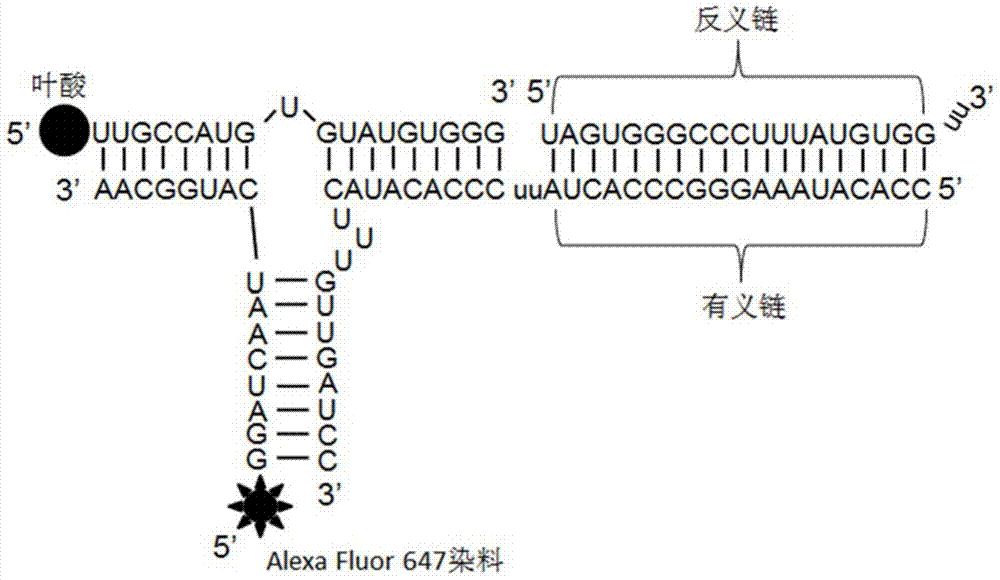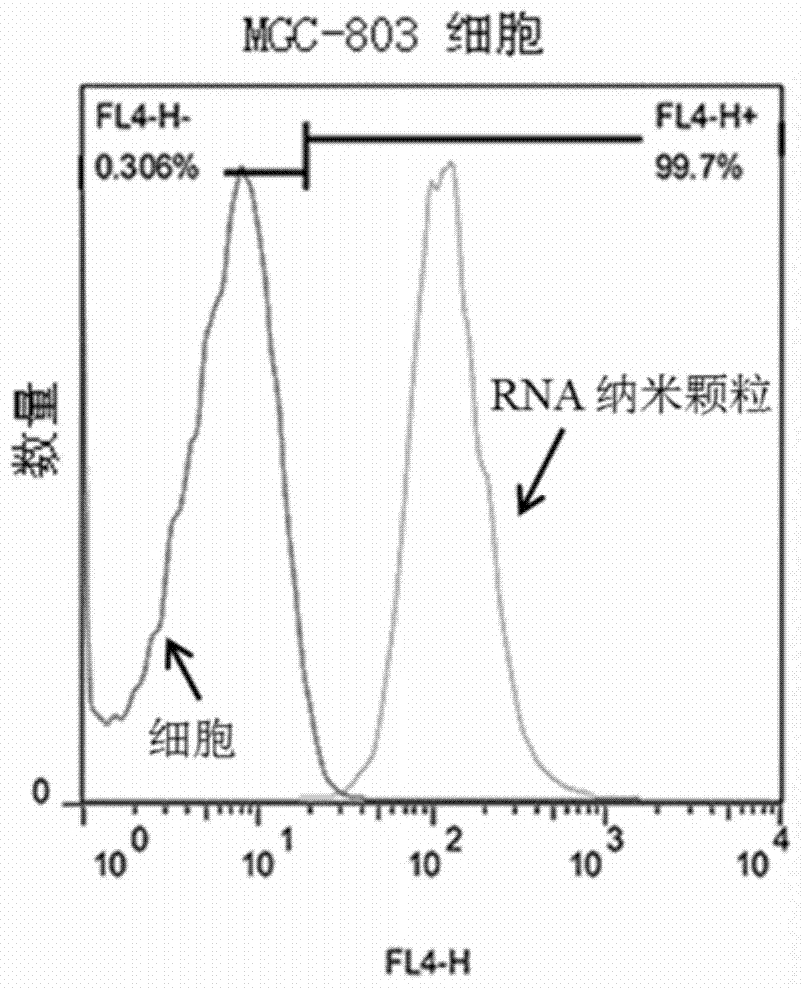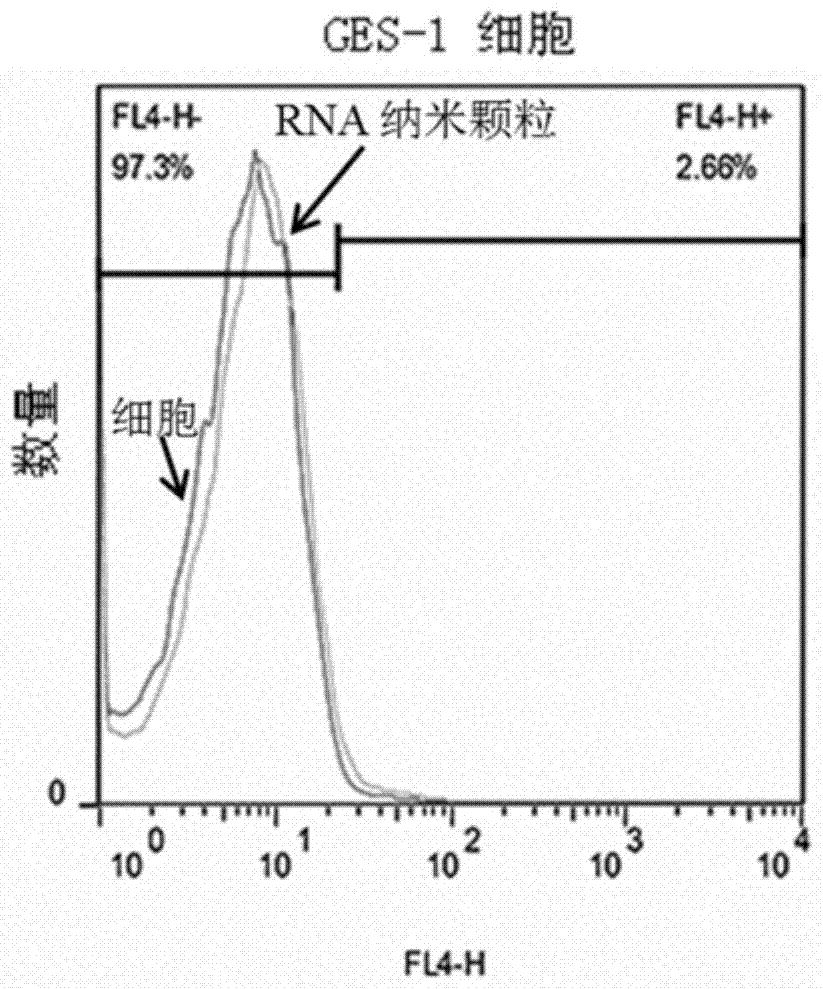RNA nanoparticles and their application in the prevention and treatment of gastric cancer
A nanoparticle and particle technology, applied in the fields of application, nanotechnology, nanotechnology, etc., can solve the problems of difficult gastric cancer treatment application, biosafety of highly cytotoxic lentivirus, etc., and achieve inhibition of killing gastric cancer cells, efficient and specific delivery , enhance the effect of treatment
- Summary
- Abstract
- Description
- Claims
- Application Information
AI Technical Summary
Problems solved by technology
Method used
Image
Examples
Embodiment 1
[0036] Example 1 Realization of RNA Nanoparticles Carrying siRNA to Kill Gastric Cancer Cells
[0037] RNA nanoparticles carry siRNA into gastric cancer cells to kill gastric cancer cells and inhibit the growth of subcutaneous tumors in nude mice. The experimental method is as follows:
[0038] The first step, the construction of pRNA-3WJ RNA nanoparticles:
[0039] The RNA nanoparticles consist of three parts (see figure 1 ), the 5' ends of chain a, chain b and chain c were respectively covalently modified with folic acid molecule (as a targeting ligand), Alexa Fluor647 (near-infrared fluorescent indicator), and BRCAA1siRNA to make a3WJ , b3WJ and c3WJ three parts, the above three parts are produced by TriLink Company of the United States. The three parts a3WJ, b3WJ and c3WJ were mixed in DEPC-treated ultrapure water or TMS buffer (89mM Tris, 5mM MgCl2, pH7.6) at a molar ratio of 1:1:1. In order to purify dimers, trimers, and nanoparticles of 3WJ structure composed of the ...
Embodiment 2
[0057] Example 2 RNA nanoparticles as probes for imaging
[0058] In this embodiment, RNA nanoparticles labeled with a near-tracer (infrared dye) are used as living body fluorescence imaging probes (such as nude mice subcutaneously transplanted tumor models of gastric cancer), and the experimental method is as follows:
[0059] The first step, establishment of subcutaneous tumor model in nude mice
[0060] The method of the fifth step in Example 1 was used to establish the subcutaneous tumor model of the MGC-803 cell line in nude mice, and it was used for living fluorescent animal experiments when the volume of the tumor reached about 200 mm3.
[0061] RNA nanoparticles labeled with folic acid and near-infrared dye Alexa Fluor647 were intravenously injected into nude mice (according to the concentration of 32mg / kg body weight, adding about 200μl of 20nmol RNA nanoparticles dissolved in PBS buffer), 30 days after intravenous injection Minutes, 3 hours, 5 hours, 12 hours and 24...
PUM
 Login to View More
Login to View More Abstract
Description
Claims
Application Information
 Login to View More
Login to View More - R&D
- Intellectual Property
- Life Sciences
- Materials
- Tech Scout
- Unparalleled Data Quality
- Higher Quality Content
- 60% Fewer Hallucinations
Browse by: Latest US Patents, China's latest patents, Technical Efficacy Thesaurus, Application Domain, Technology Topic, Popular Technical Reports.
© 2025 PatSnap. All rights reserved.Legal|Privacy policy|Modern Slavery Act Transparency Statement|Sitemap|About US| Contact US: help@patsnap.com



